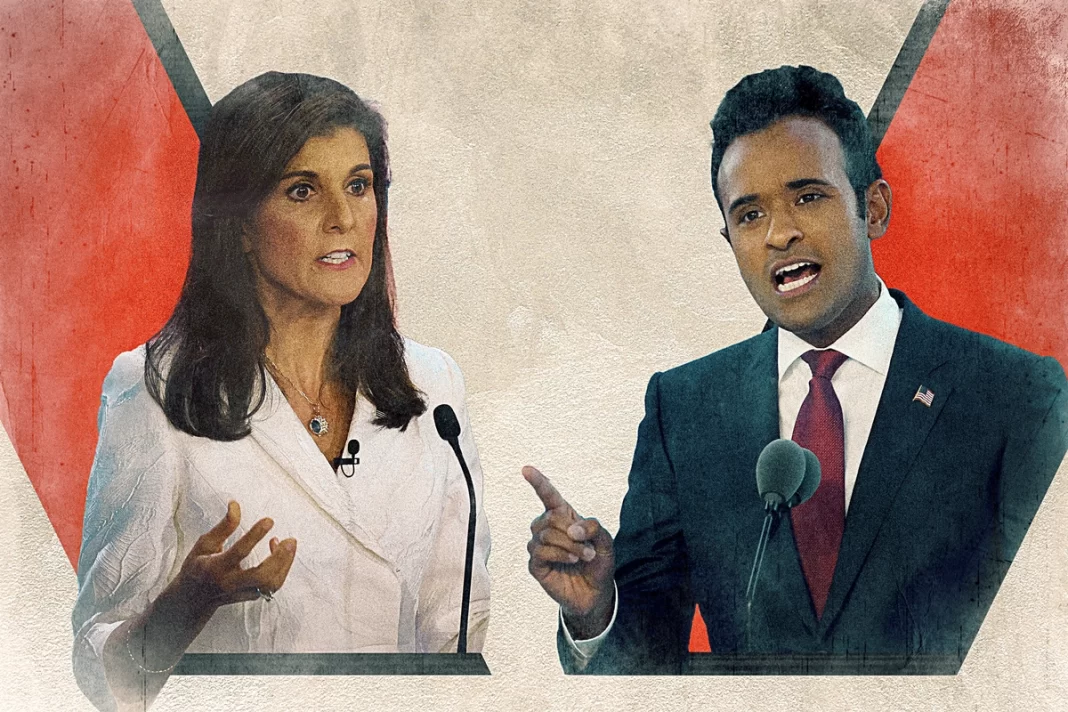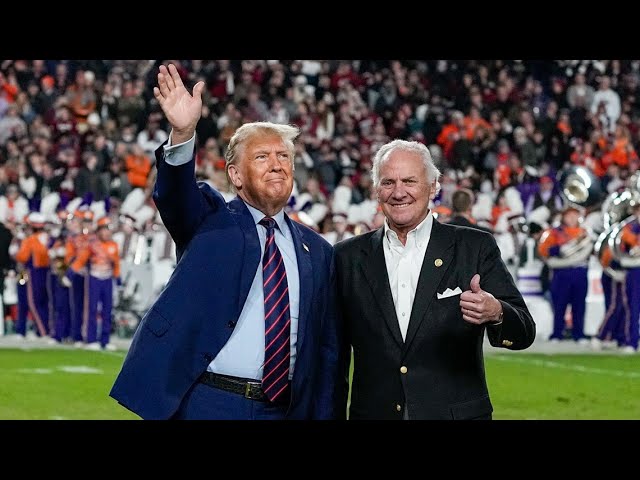
‘You can’t really win a Republican primary or even really be competitive being a neocon. Impossible,’ Steve Bannon says.
Vivek Ramaswamy has a favorite term for his enemies on foreign policy: “neocon,” short for neoconservative.
“I want to be careful to avoid making the mistakes from the neocon establishment of the past,” he told moderator Lester Holt during the third Republican presidential debate on Nov. 8 in Miami.
“Corrupt politicians in both parties spent trillions, killed millions, made billions for themselves in places like Iraq and Afghanistan fighting wars that sent thousands of our sons and daughters, people my age, to die in wars.
“Do you want Dick Cheney in three-inch heels? Because we have two of them on this stage tonight.”
He was referring to Nikki Haley and Florida Gov. Ron DeSantis.
Ms. Haley later hit back on social media: “I wear heels. They’re not for a fashion statement. They’re for ammunition.”
As she pushes past 10 percent in the polls, she’s drawing attention from influential donors amid the Israel–Hamas war and the ongoing Russia–Ukraine conflict. In Miami, she indicated that she was willing to bomb Iran in response to proxy attacks against Israel and the United States.
Alongside foreign policy assumptions from the George H.W. Bush administration, neoconservatism has helped set the tone for foreign policy views that still dominate the GOP establishment, according to both Col. Douglas Macgregor, a senior defense adviser under President Donald Trump, and Steve Bannon, who served as the White House’s chief strategist early in the Trump presidency and is the host of the “Bannon’s War Room” podcast.
They spoke with The Epoch Times, along with several others, about the neoconservative streak in U.S. politics and what it means for 2024.
Rise of the Neocons
The word “neocon” conjures up some familiar faces from the past several decades of U.S. politics.
Aside from Mr. Cheney, there’s John Bolton, U.N. ambassador under President George W. Bush and a national security adviser for President Trump. Mr. Bolton has since repudiated the 45th president.
In the Senate, there’s Sen. Lindsey Graham (R-S.C.) and the late John McCain (R-Ariz.). On the other side of the aisle, there’s former Sen. Joe Lieberman (D-Conn.) and, from the Cold War era, Sen. Henry “Scoop” Jackson (D-Wash.).
But behind the names that get quoted in mass media is a tight network of intellectuals.







